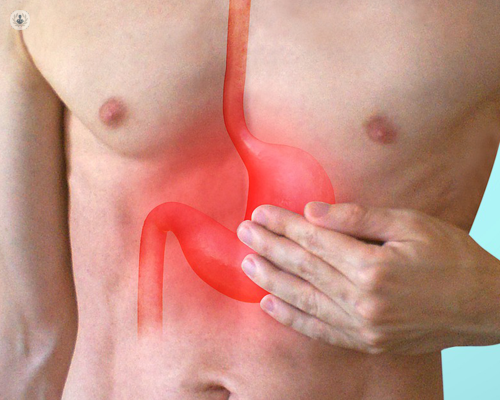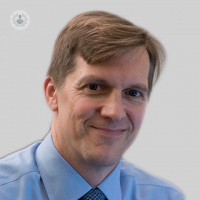Practical tips to tackle indigestion
Written by:Indigestion (dyspepsia) is a general term for discomfort in the chest or stomach after eating. This includes chest pain, heartburn, belching, and regurgitation. These symptoms may be caused by acid reflux (regurgitation of acid from the stomach into the gullet) or other rarer oesophageal or stomach (gastric) problems.
It is very common but rarely dangerous. At least one in three people suffer from one of these symptoms. Heartburn occurs due to a poorly functioning valve at the bottom of the gullet often related to a hiatus hernia (movement of the stomach into the chest cavity). Acid reflux can cause Barrett's oesophagus, a condition which can lead to cancer of the oesophagus.
In this article below, Dr Matthew Banks, explains how we can best avoid sudden indigestion.

What lifestyle habits can help people avoid indigestion?
Here are some general tips that you can adopt to try to best avoid indigestion:
- Avoid eating late
- leave at least 4 hours before going to bed if you have had a heavy meal
- Avoid large, heavy, high-fat meals
- Avoid irritating foods such as those high in spices, vinegar, and citrus fruits/juices
- Avoid caffeine
- Reduce alcohol consumption
How is indigestion treated?
Antacids can reduce symptoms rapidly. Take them when your symptoms are most common, for example after eating food or before bed. Medicines which reduce acid production include ranitidine (An H2 antagonist) and omeprazole (a proton pump inhibitor). These are best taken 30-60 minutes before food for the best effect.
They can be bought in low dose in pharmacies but need a prescription for higher dose. If any of your symptoms persist despite treatment, or you are older than 40 and the symptoms are new, we would suggest seeing your doctor, and, if necessary, a specialist gastroenterologist.
If you would like to learn more about indigestion and if you are experiencing symptoms at present, make sure you book an appointment with Dr Matthew Banks today via his Top Doctors profile.



